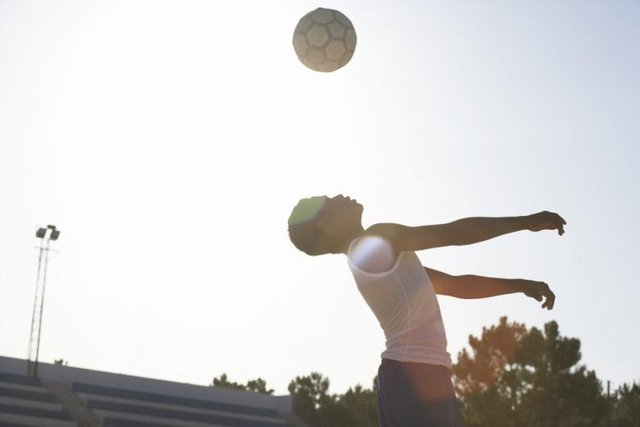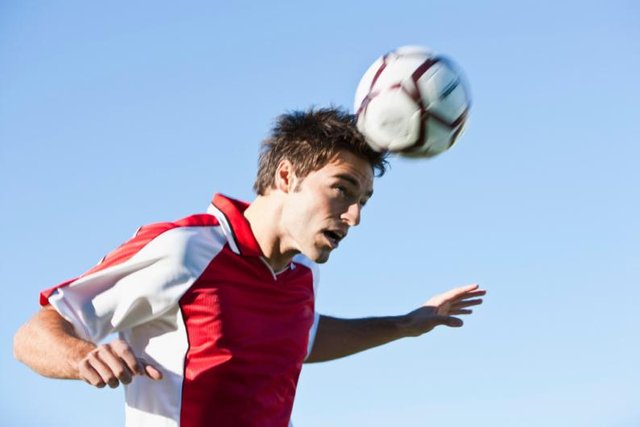Can a football head be damaged if it damages the brain? This says science

Football lovers know that the top goals are among the most beautiful, the same for the spectacular defensive clearances through headbutts, although these are quite strong.
In England, the cradle of football, conducted the largest study to date on the effect that the head has in the brains of football players, both short and long term and the results are so conclusive that you will think different every time you see a goal in the head
How does heading the head affect the brain of footballers?

A ball at full speed that is also hit with the head giving direction. A good pitch is an art but its effects can be devastating over the brains of the players.
A study carried out by a team of specialists from the United Kingdom determined that head-to-head causes serious damage to players' brains, making them more likely to develop different types of dementia at an early age.
The research included the analysis of the brains of 14 deceased players and could be examined directly through autopsies. On average, these players were dedicated to soccer, either as professionals or youth, for 26 years.
The team of specialists found in six of their brains traces of an injury known as chronic traumatic encephalopathy, which is linked to problems of memory, depression and dementia. This type of damage is similar to that seen in ex-boxers or football players.
In the general population, 12% have some traumatic wound in the brain, a percentage much lower than in the case of football players, so there would clearly be a relationship between this sport and the development of chronic traumatic encephalopathy.
Is it possible to prevent brain damage in footballers?

The brains analyzed by the team of specialists shed light on the long-term consequences of heading the ball, it is estimated that a player will make about a thousand pitches during his career.
Cranial and brain injuries that can be seen in immediate and short periods usually come from frontal crashes, either head to head or when the skull makes contact with another part of the opponent's body, floor or arch.
In the case of chronic traumatic encephalopathy, the damage would be due to the number of strokes received by the player's brain for decades, which makes these traumatic injuries in the long term.
Although there are no official figures, an important part of former football players will present some kind of dementia before they die and they are also more likely to do so at a young age. Since the English Football Federation are aware of the results of the study and promised to discuss ways to prevent these injuries, but it is difficult to get the nod of this sport.
An important way to prevent or at least lessen the damage would be to prevent children from nodding inculcating other types of plays, so those who become professionals will be trained not to favor headbutts or at least receive them for a shorter amount of time.